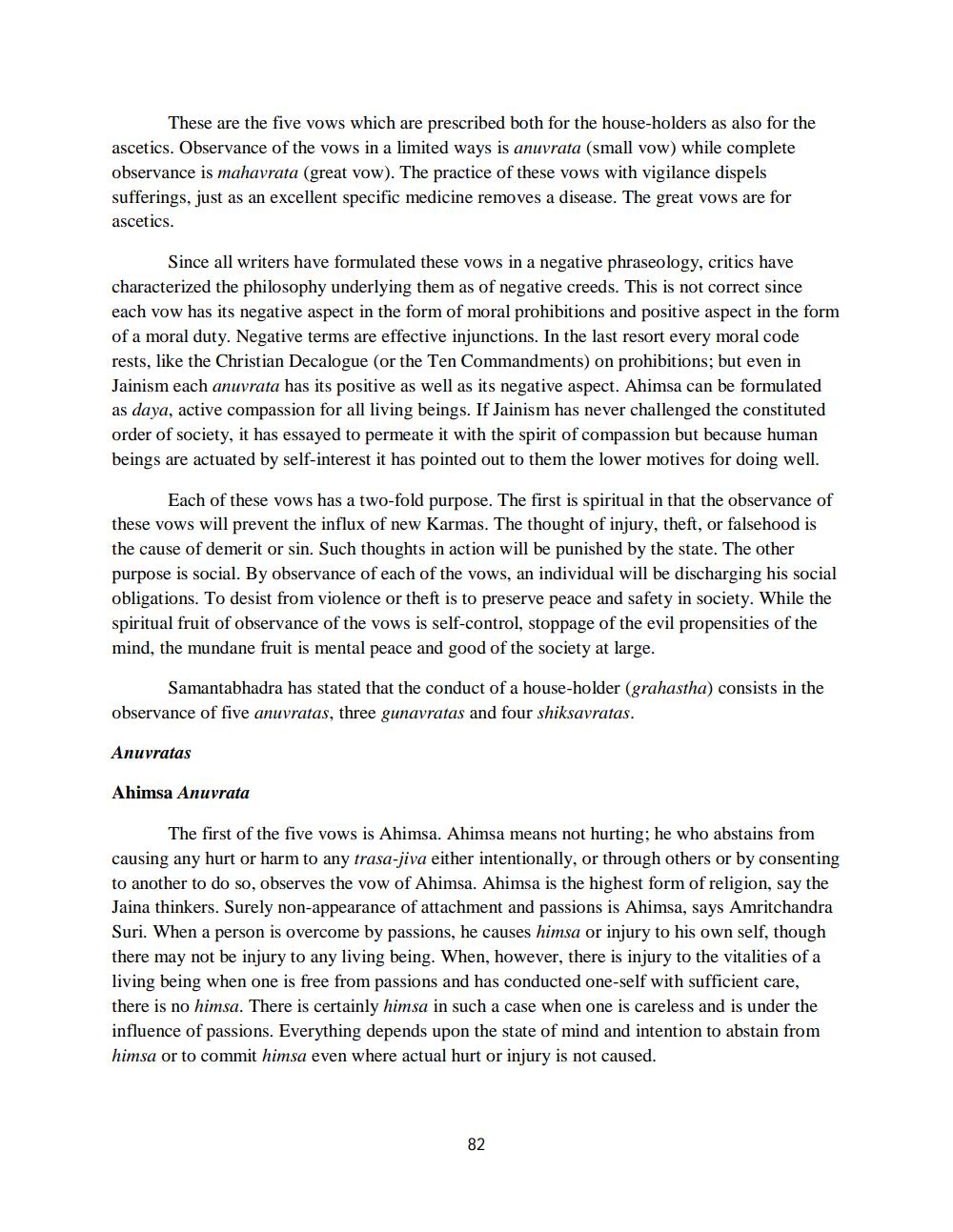________________
These are the five vows which are prescribed both for the house-holders as also for the ascetics. Observance of the vows in a limited ways is anuvrata (small vow) while complete observance is mahavrata (great vow). The practice of these vows with vigilance dispels sufferings, just as an excellent specific medicine removes a disease. The great vows are for ascetics.
Since all writers have formulated these vows in a negative phraseology, critics have characterized the philosophy underlying them as of negative creeds. This is not correct since each vow has its negative aspect in the form of moral prohibitions and positive aspect in the form of a moral duty. Negative terms are effective injunctions. In the last resort every moral code rests, like the Christian Decalogue (or the Ten Commandments) on prohibitions; but even in Jainism each anuvrata has its positive as well as its negative aspect. Ahimsa can be formulated as daya, active compassion for all living beings. If Jainism has never challenged the constituted order of society, it has essayed to permeate it with the spirit of compassion but because human beings are actuated by self-interest it has pointed out to them the lower motives for doing well.
Each of these vows has a two-fold purpose. The first is spiritual in that the observance of these vows will prevent the influx of new Karmas. The thought of injury, theft, or falsehood is the cause of demerit or sin. Such thoughts in action will be punished by the state. The other purpose is social. By observance of each of the vows, an individual will be discharging his social obligations. To desist from violence or theft is to preserve peace and safety in society. While the spiritual fruit of observance of the vows is self-control, stoppage of the evil propensities of the mind, the mundane fruit is mental peace and good of the society at large.
Samantabhadra has stated that the conduct of a house-holder (grahastha) consists in the observance of five anuvratas, three gunavratas and four shiksavratas.
Anuvratas
Ahimsa Anuvrata
The first of the five vows is Ahimsa. Ahimsa means not hurting; he who abstains from causing any hurt or harm to any trasa-jiva either intentionally, or through others or by consenting to another to do so, observes the vow of Ahimsa. Ahimsa is the highest form of religion, say the Jaina thinkers. Surely non-appearance of attachment and passions is Ahimsa, says Amritchandra Suri. When a person is overcome by passions, he causes himsa or injury to his own self, though there may not be injury to any living being. When, however, there is injury to the vitalities of a living being when one is free from passions and has conducted one-self with sufficient care, there is no himsa. There is certainly himsa in such a case when one is careless and is under the influence of passions. Everything depends upon the state of mind and intention to abstain from himsa or to commit himsa even where actual hurt or injury is not caused.




